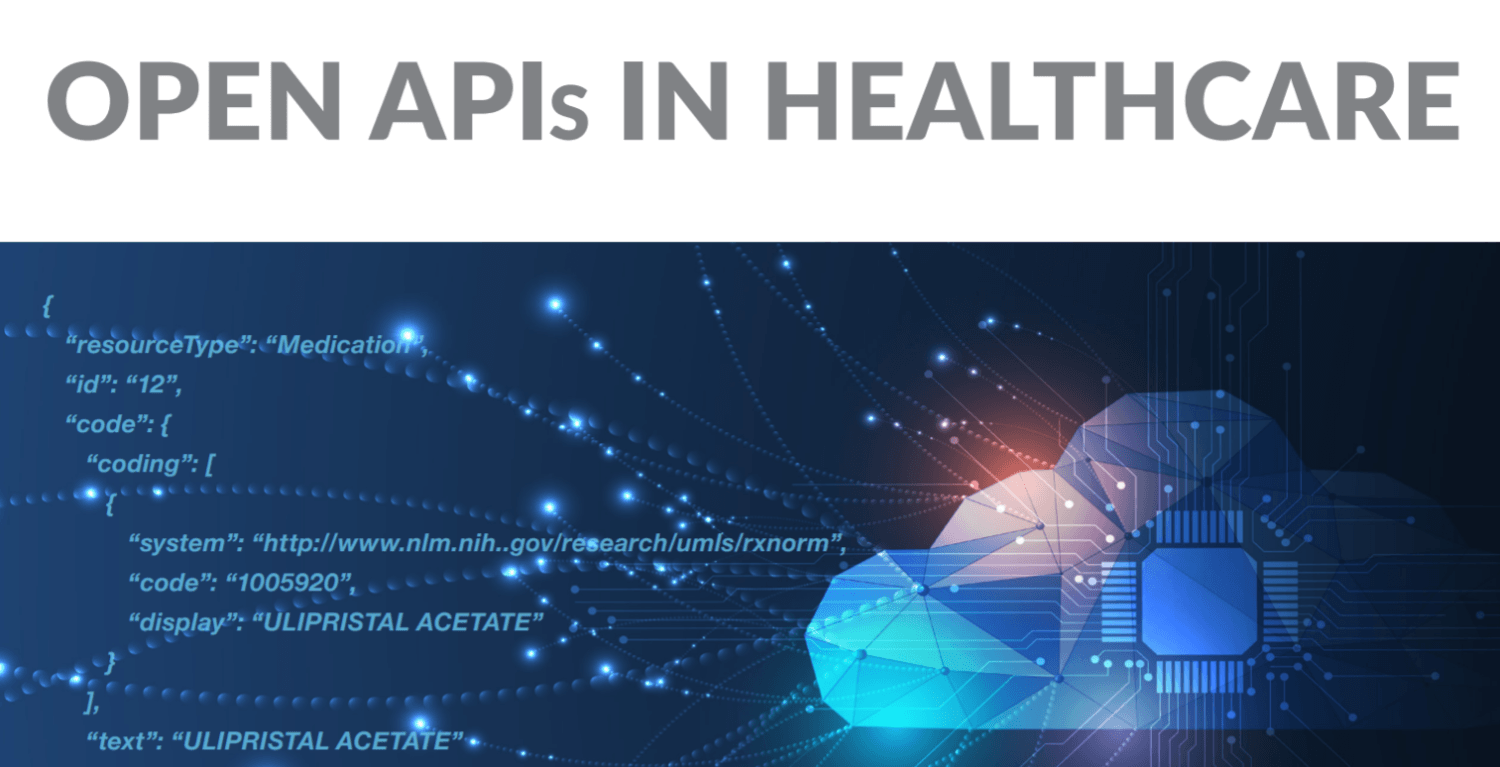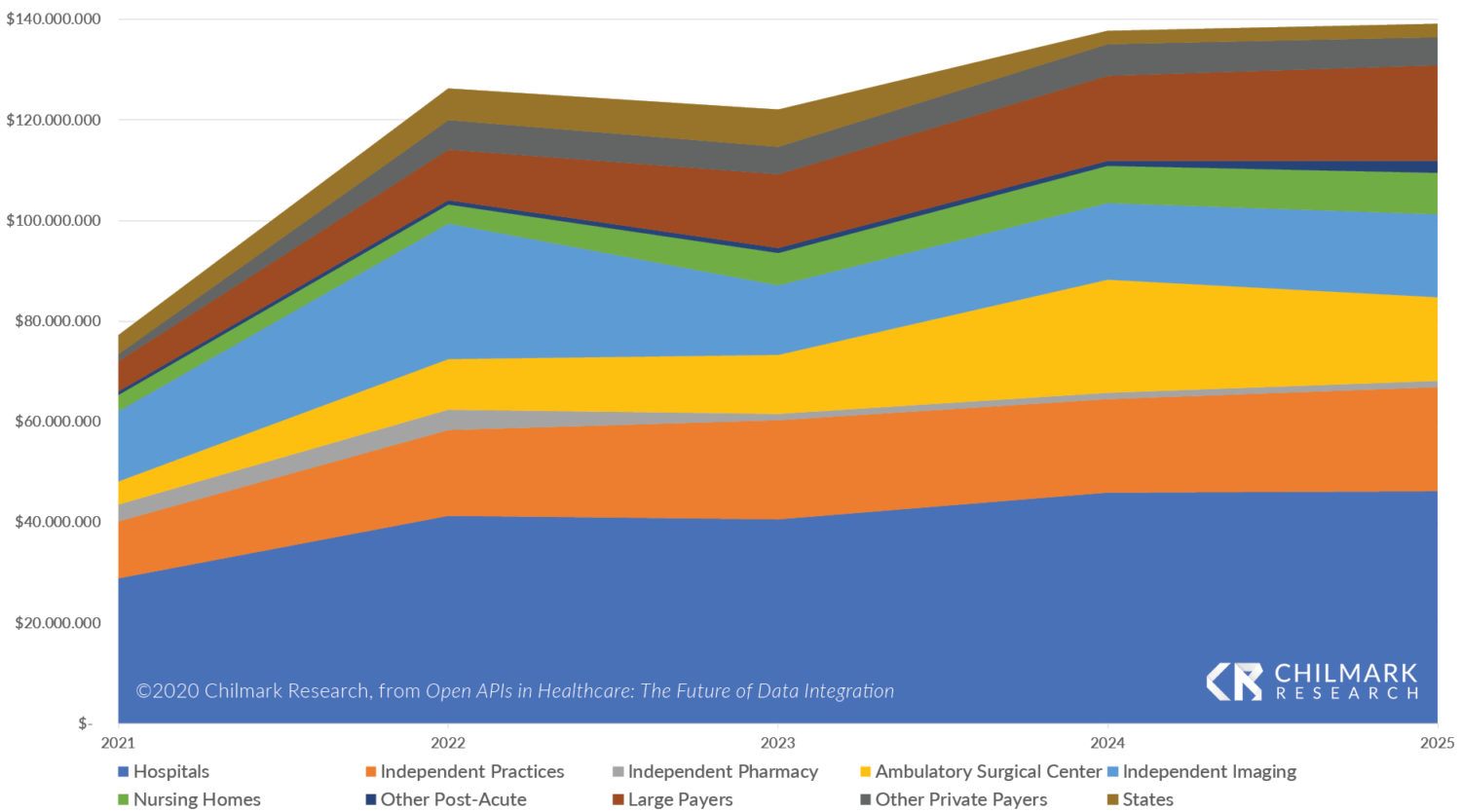
What You Should Know:
– The latest Chilmark Research report examines how data-oriented APIs are contributing to development and integration efforts across healthcare from the perspective of the developer.
– Reeling from the impact of the COVID-19 pandemic and seeking more effective ways to implement new functionality, healthcare enterprises of all kinds are looking to alternatives for prevailing development and integration practices.
Unlocking value from the data scattered across healthcare communities was once a tantalizing opportunity. After COVID-19, it is an existential necessity. Chilmark Research’s latest Market Trends Report, Open APIs in Healthcare: The Future of Data Integration, captures a market whose approach to data access and integration will be changing substantially in the coming years and introduces a subvertical within healthcare IT that anticipates a 16% CAGR through 2025.
APIs Are Still New in Healthcare

Outside healthcare, the ascendance of data access and integration facilitated by application programming interfaces (APIs) is the culmination of decades of technology evolution and implementation lessons with distributed applications. Across the SaaS landscape in particular, APIs have become the preferred method for accessing data and conducting transactions across applications and organizations. Developers recognize and appreciate the value of loosely coupling their applications and data, wherever each is located.
Inside healthcare, many enterprises are hesitant on the topic of APIs, seeing them as too big a leap from established, successful software practices. But they also recognize that eliminating the need for hard-coded interfaces that must be re-implemented every time an application or its underlying data changes will deliver higher programmer productivity and more-responsive applications.
Traditional Integration Methods Fall
Short
Conventional development and
integration approaches proved cumbersome and slow in efforts to contribute to
understanding or responding to the current health crisis. Unlocking more value
from the data scattered across healthcare communities is — post-COVID-19 —
a critical element in clinical and
financial renewal.
“Enterprises across healthcare were already wrestling with challenging market forces and government mandates,” says Brian Murphy, the report’s lead author and analyst. “Open APIs will play a central role for providers, payers, or any healthcare enterprises that intend to better utilize their data and pursue development efforts that make them — and the broader healthcare community — more responsive and adaptable to the demands of a post-pandemic healthcare system.”
Developers Require Accessible Data

Developers find data wherever they can from among a large and confusing mix of data holders and associated vendors. This report identifies the sources where different kinds of health-related data are most likely to be API-accessible. It shows how APIs are already contributing to development and integration efforts across healthcare and estimates the much larger potential of widespread adoption.
This report includes detailed profiles on 20 public and private organizations and their offerings, including 1upHealth, 4Medica, Allscripts, Apple, Athenahealth, Availity, Blue Button 2.0, Cerner, Change Healthcare, Datica, Epic, Human API, Meditech, NextGen, NCPDP, Particle Health, The Sequoia Project, Redox, Surescripts, and Validic.
For more information about the report, visit https://www.chilmarkresearch.com/chilmark_report/open-apis-in-healthcare-the-future-of-data-integration/
